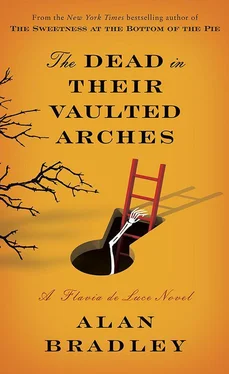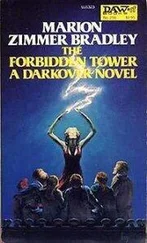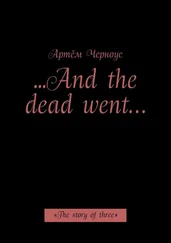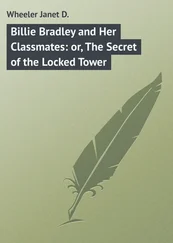Spotted Owl Award for Best Novel
CWA Debut Dagger Award
“If ever there was a sleuth who’s bold, brilliant, and, yes, adorable, it’s Flavia de Luce.”
— USA Today
“A wickedly clever story, a dead-true and original voice, and an English country house in the summer: Alexander McCall Smith meets Sir Arthur Conan Doyle. Please, please, Mr. Bradley, tell me we’ll be seeing Flavia again soon?”
—LAURIE R. KING, bestselling author of Garment of Shadows
“Impressive as a sleuth and enchanting as a mad scientist … Flavia is most endearing as a little girl who has learned how to amuse herself in a big lonely house.”
—MARILYN STASIO, The New York Times Book Review
“A delightful new sleuth. A combination of Eloise and Sherlock Holmes … fearless, cheeky, wildly precocious.”
— The Boston Globe
Contents
Cover
Title Page
Copyright
Epigraph
Prologue
Chapter One
Chapter Two
Chapter Three
Chapter Four
Chapter Five
Chapter Six
Chapter Seven
Chapter Eight
Chapter Nine
Chapter Ten
Chapter Eleven
Chapter Twelve
Chapter Thirteen
Chapter Fourteen
Chapter Fifteen
Chapter Sixteen
Chapter Seventeen
Chapter Eighteen
Chapter Nineteen
Chapter Twenty
Chapter Twenty-one
Chapter Twenty-two
Chapter Twenty-three
Chapter Twenty-four
Chapter Twenty-five
Chapter Twenty-six
Chapter Twenty-seven
Chapter Twenty-eight
Chapter Twenty-nine
Chapter Thirty
Epilogue
Dedication
Acknowledgments
Other Books by This Author
About the Author
The Marble Tombs that rise on high,
Whose Dead in vaulted Arches lye,
Whose Pillars swell with sculptur’d Stones,
Arms, Angels, Epitaphs and Bones,
These (all the poor Remains of State)
Adorn the Rich, or praise the Great;
Who while on Earth in Fame they live,
Are senseless of the Fame they give.
Thomas Parnell,
A Night-Piece on Death (1721)
PROLOGUE
“Your mother has been found.”
Nearly a week after he had made it, Father’s shocking announcement was still ringing in my ears .
Harriet! Harriet found! Who could believe it?
Harriet, who had been lost in a mountaineering accident when I was barely a year old; Harriet, whom I can’t remember seeing, ever, with my own eyes .
My reaction?
Numbness, I’m afraid .
Sheer stupid silent numbness .
Not joy—not relief—not even gratitude to those who had found her more than ten years after her disappearance in the Himalayas .
No, I felt only a cold numbness: a cold, shameful sort of numbness that made me need desperately to be alone .
ONE
TO BEGIN WITH, IT was a perfect English morning: one of those dazzling days in early April when a new sun makes it seem suddenly like full-blown summer.
Sunshine broke through the fat white dumplings of the clouds, sending shadows chasing one another playfully across the green fields and up into the gently rolling hills. Somewhere in the woods on the other side of the railway line, a nightingale was singing.
“It’s like a colored plate from Wordsworth,” my sister Daphne said, almost to herself. “Far too picturesque.”
Ophelia, my oldest sister, was a still, pale, silent shadow, lost in her own thoughts.
At the appointed time, which happened to be ten o’clock, we were all of us gathered more or less together on the little railway platform at Buckshaw Halt. I think it was the first time in my life I had ever seen Daffy without a book in her hand.
Father, who stood a bit apart from us, kept glancing every few minutes at his wristwatch and looking along the track, eyes squinting, watching for smoke in the distance.
Directly behind him stood Dogger. How odd it was to see these two men—gentleman and servant—who had been through such ghastly times together, standing dressed in their Sunday best at an abandoned country railway station.
Although Buckshaw Halt had once been used to bring both goods and guests to the great house, and although the rails remained, the station proper, with its weathered bricks, had been boarded up for donkey’s years.
In the past few days, though, it had been hurriedly made ready for Harriet’s homecoming: swept out and tidied up, its broken windowpanes replaced, the tiny flower bed weeded and planted with a small riot of flowers.
Father had been asked to go up to London and ride with her back to Buckshaw, but he had insisted on being at the little station at Buckshaw Halt to meet the train. It was, after all, he had explained to the vicar, the place and manner in which he had first met her all those many years ago when both of them were young.
As we waited, I noticed that Father’s boots had been polished to a high-gloss perfection, from which I deduced that Dogger was currently in a much improved state. There were times when Dogger screamed and whimpered in the night, huddled in the corner of his tiny bedroom, visited by the ghosts of far-off prisons, tormented by the devils of the past. At all other times he was as competent as any human is capable of being, and I sent up thanks that this morning was one of them.
Never had we needed him more.
Here and there on the platform, small, tight knots of villagers, keeping a respectful distance, talked quietly to one another, preserving our privacy. More than a few of them stood huddled closely round Mrs. Mullet, our cook, and her husband, Alf, as if doing so made them, by some magic, part of the immediate household.
As ten o’clock approached, everyone, as if at an arranged signal, fell suddenly quiet, and an unearthly hush settled upon the countryside. It was as though a bell jar had been lowered upon the land and all the world was holding its breath. Even the nightingale in the woods had abruptly ceased its song.
The very air on the station platform was now electric, as it often becomes when a train is approaching but not yet in sight.
People shifted uneasily from foot to foot, and the faint wind of our collective breathing made a soft sigh on the gentle English air.
And then, finally, after what seemed like an eternal stillness, we saw in the distance the smoke from the engine.
Nearer and nearer it came, bringing Harriet—bringing my mother—home.
The breath seemed sucked from my lungs as the gleaming engine panted into the station and squealed to a stop at the edge of the platform.
It was not a long train: not more than an engine and half a dozen carriages, and it sat resting for a few moments in the importance of its own swirling steam. There was an odd little lull.
Then a guard stepped down from the rear carriage and blew three sharp blasts on a whistle.
Doors opened, and the platform was suddenly swarming with men in uniform: military men with a dazzling array of full medals and clipped mustaches.
They formed up quickly into two columns and stood stiffly at attention.
A tall, tanned man I took to be their leader, his chest a wall of decorations and colored ribbons, marched smartly to where Father stood and brought his arm up in a sharp salute that left his hand vibrating like a tuning fork.
Although he seemed in a daze, Father managed a nod.
From the remaining carriages poured a horde of men in black suits and bowler hats carrying walking sticks and furled umbrellas. Among them were a handful of women in severe suits, hats, and gloves; a few, even, were in uniform. One of these, a fit but forbidding woman in RAF colors, looked such a Tartar and had so many stripes on her sleeve that she might have been an Air Vice-Marshal. This little station at Buckshaw Halt, I thought, in all of its long history, had never before been so packed with such an assortment of humanity.
Читать дальше












